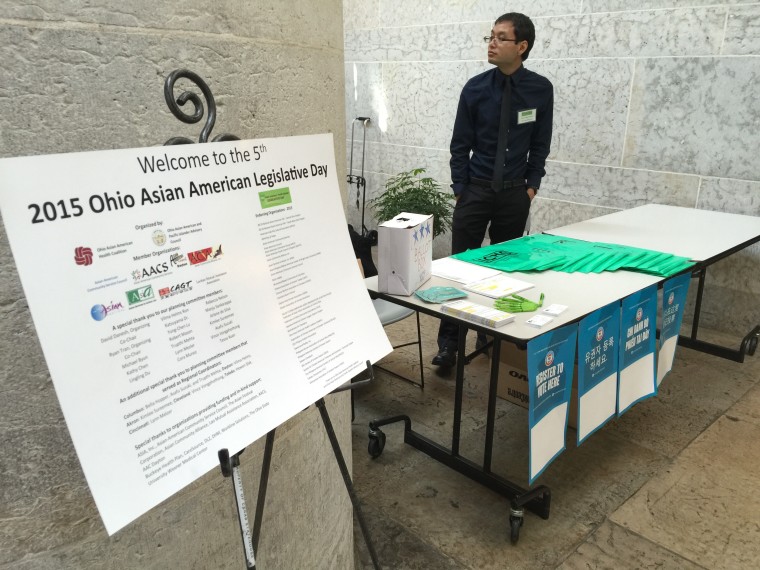In Ohio, the most vocal Asian Americans are Democrats, but the community likes to point to a young Republican as an example of empowerment.
State Rep. Niraj Antani, the first Indian American voted to the Buckeye State's legislature, they see an example of how a small community can make a difference despite being approximately 1.3 percent of the electorate in Ohio, according to APIA Vote.
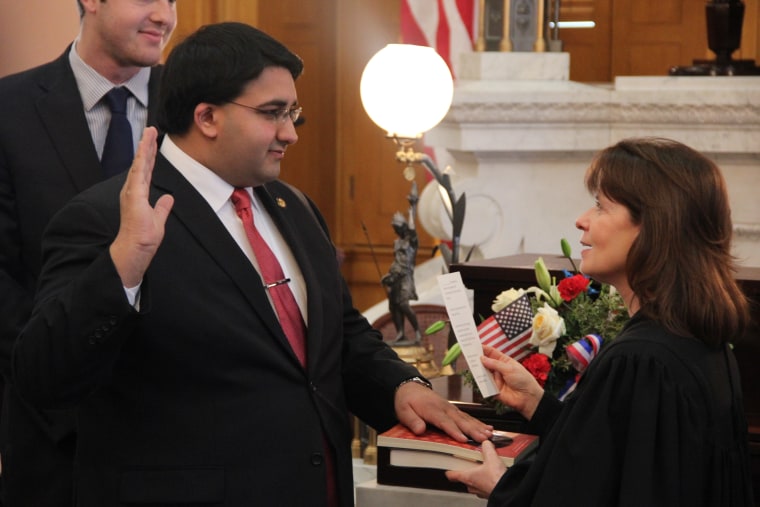
“We have 204,000 Asian American Pacific Islanders total, and 11.5 million Ohioans total, so you can do the math,” Antani, 25, told NBC News.
“We’re not California,” he added. “It is not a populous state for Asian Americans, but were still pretty influential.”
Antani points to another young Republican, Cliff Rosenberger, who is part Korean-American. Rosenberger, 33, was named Ohio’s Speaker of the House two years ago.
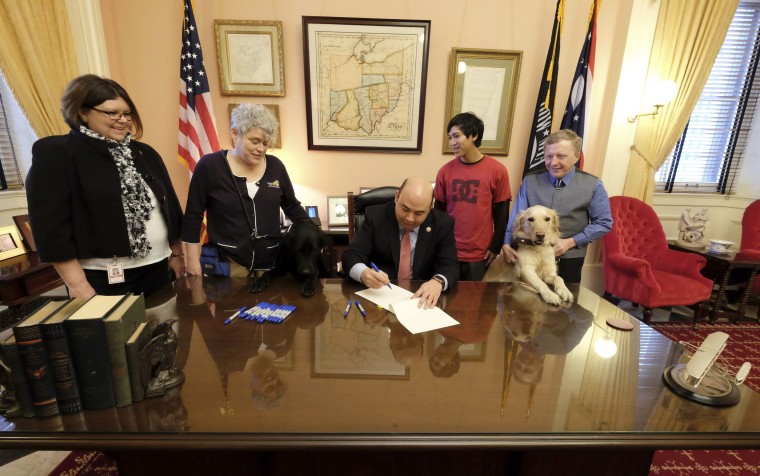
Last Friday, Antani kicked off a town hall meeting in his district for Gov. John Kasich, who is trying to keep his presidential bid alive with a victory in his home state.
Being part of an Asian-American minority hasn’t kept Antani from the fast track in politics. A graduate of The Ohio State University, the practicing Hindu was born and raised in Ohio and speaks the political language of his constituents.
“I have a great relationship with the conservative Christian community,” Antani said. “We share similar beliefs and values in working hard, being independent and not being dependent, respecting family, and different values like that. I’m as conservative as they come. I’m pro-life, pro-gun, against raising taxes, and I’m for cutting spending.”
Antani’s example of empowerment in Dayton is an inspiring tale to other Asian Americans in the state, who’ve come to realize that by coalescing, the community can create political strength.
RELATED: As Asian-American Electorate Grows, GOP Aims to Turn Local Wins National
It begins with community outreach and mobilizing votes.
Kimlee Sureemee of Asian Services in Action is part of a state-wide effort to engage the Asian-American voter in Ohio. Funded by the AAPI Civic Engagement Fund, VREP has organized a coalition of groups in Ohio’s most populated areas: Asian American Community Services in Columbus, Asian Community Alliance in Cincinnati, and the OCA Greater Cleveland Chapter in Cleveland.
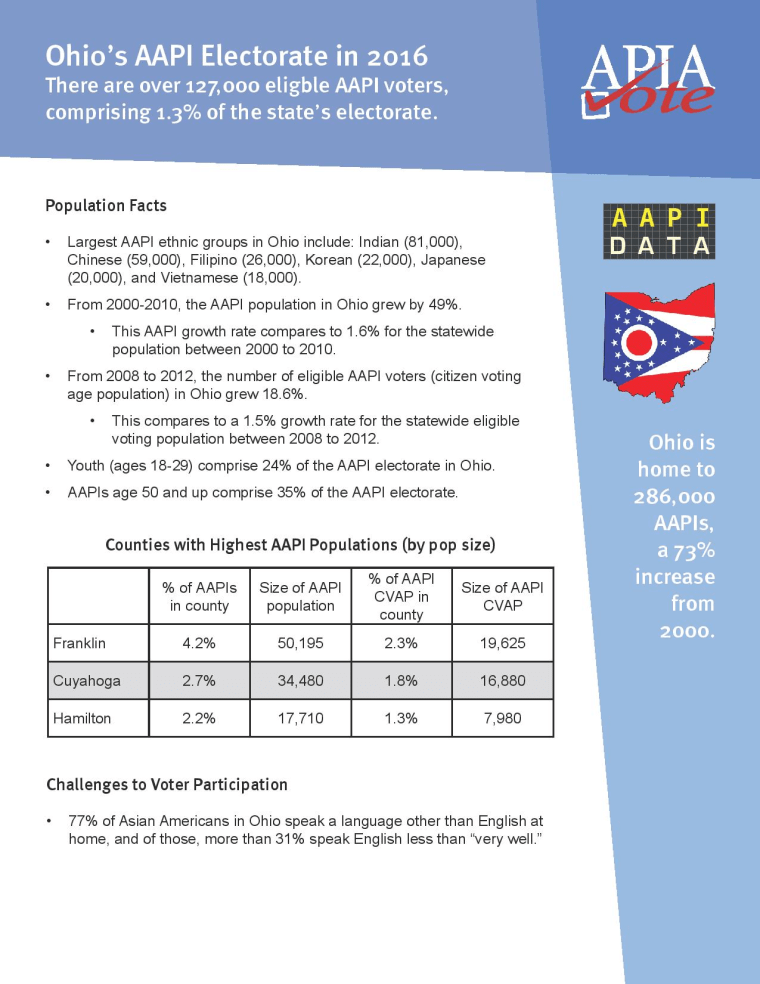
The Voter Registration Engagement Project (VREP) is especially critical because many voters were purged in 2015 from lack of voting.
“The purge cut over 100,000 API voters in these three regions alone, due to voter 'inactivity',” Sureemee told NBC News.
She said data shows the over two-thirds of the total Asian-American and Pacific Islander voter base votes Democratic, and while the primaries are important, the organization's big push is for the general election in November.
“The API 2012 presidential vote was about half the margin of victory in Ohio,” Sureemee said. “The investment in GOTV [get out the vote] efforts can make the difference in this year's election.”
Using standard approaches like phone banking, door-to-door canvassing, mailers, and town hall meetings, VREP hopes to achieve its goal of reaching upwards of 30,000 registered voters, representing a 66 percent increase over last year's election. But, because many Asian Americans speak limited English, more intensive in-person trainings and absentee ballot sessions are essential.
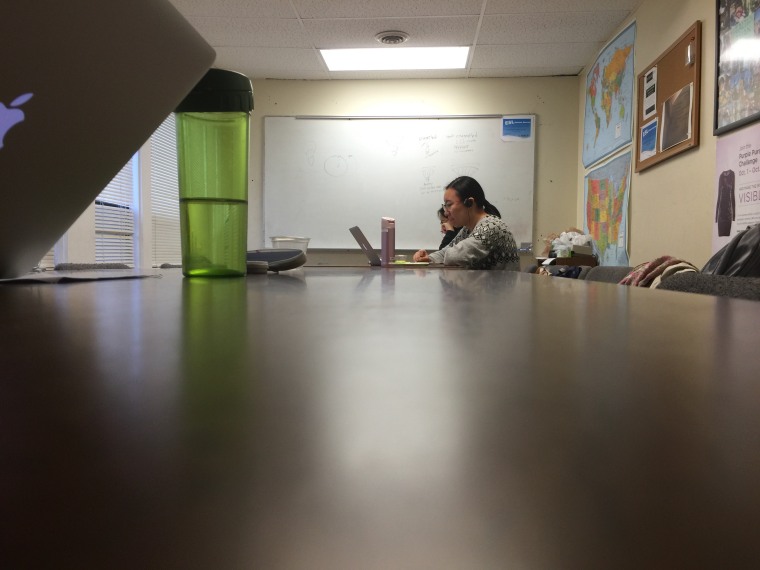
“We are confident will can reach our goal and insure increased participation as well," Sureemee said. "This year, Cleveland will host the Republican National Convention and the first presidential debate will take place in Dayton. This is an opportunity to ensure that needs of our community are heard — affordable health care, education, and fair wage to name a few.”
In Cleveland’s Asiatown, two Asian mini-malls are targets for outreach efforts.
Lisa Wong, chapter president of OCA Greater Cleveland, said it’s still a slow process.
“But we feel if we’re not there, they would not be asked to register or update their information,” Wong told NBC News. “They don’t seek or ask [about the election], but will respond if asked.”
RELATED: New Report Finds Immigrants Fuel Growth of Asian Voter Population
Wong said language is a barrier for most Chinese Americans, especially in Asiatown, where immigrants seem unsure about American politics.
“Many immigrants seem scared when asked to register, some don’t want to lose their Chinese citizenship,” Wong said.
She said in Cleveland, Democrats and Republicans are about equal in number, but sees Republicans as less vocal.
“Overall, Asians are not that active here, but they do have strong opinions,” she said. “They just don’t see the need to share their thoughts much.”
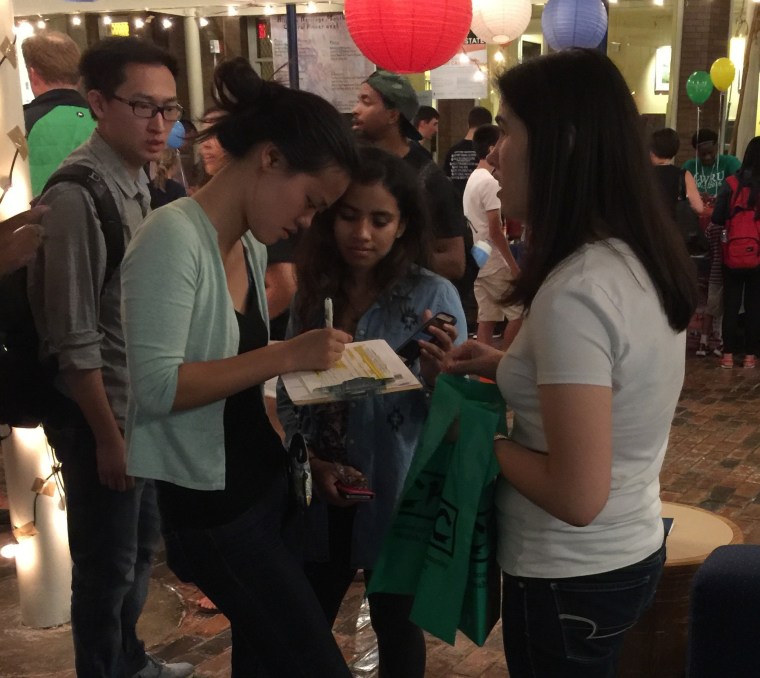
But she said she thinks people will come out for the primary because they see Donald Trump in the news.
“They are concerned about Trump, or are very pro Clinton,” Wong said. She also noted a few strong Sanders supporters among Asian Americans.
Wong said it’s disappointing when she sees people that are indifferent to registering or voting, but she feels, as a member of OCA, there’s a responsibility to make sure Asians aren’t left out of the political process.
“As an American-born Chinese caught between cultures, having a better understanding of the differences motivates me to bridge the gap,” Wong said.
Follow NBC Asian America on Facebook, Twitter, Instagram, and Tumblr.
Correction: An earlier version of this article stated that VREP was state sponsored. It is actually funded by the AAPI Civic Engagement Fund.
